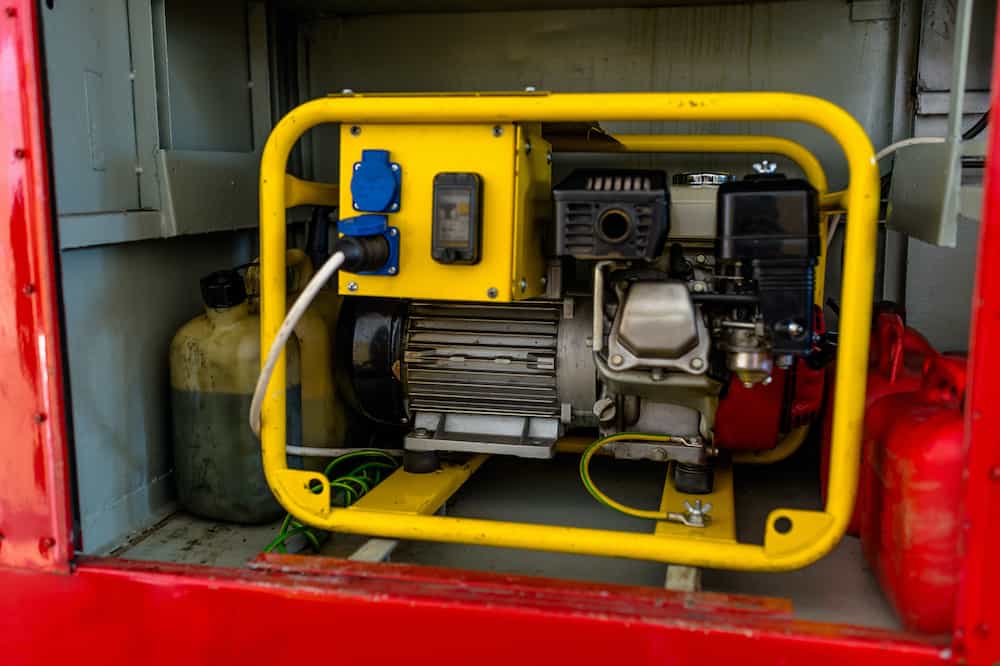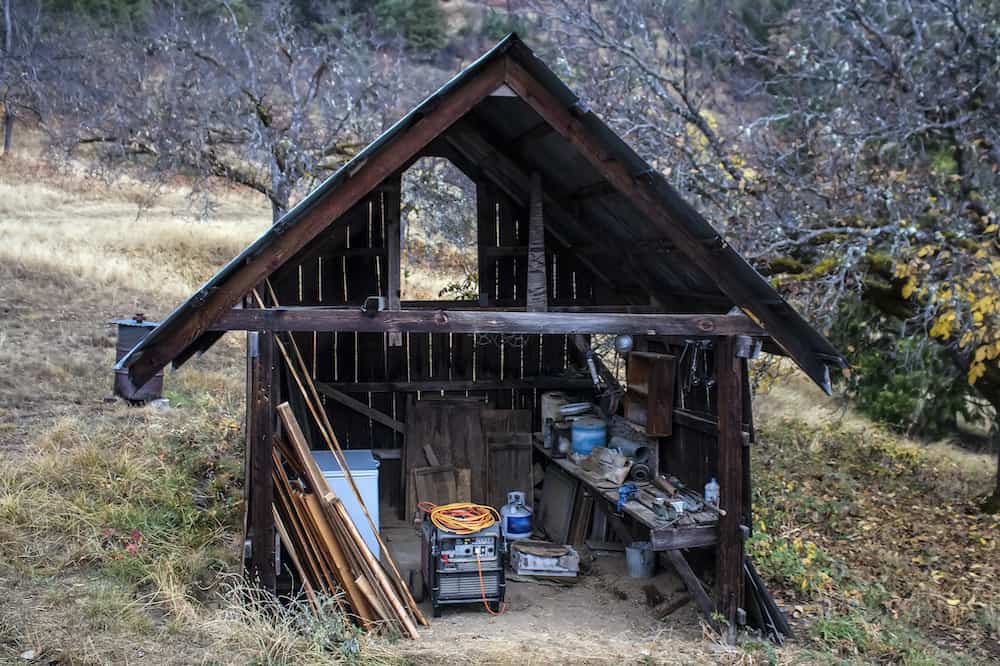Whenever there’s an outage, you can rely on your backup power to get you through, but you must know how to store a generator to maximize its longevity.
As one of the most costly investments you will ever make, it’s only fitting that you look for reliable generator storage and maintenance tips.
Whether you have a standby unit outdoors or a portable one you use for RV trips, it’s important to know how to store a generator to protect it.
How to Store a Generator When Not in Use
Not going to use your generator for a while? Before putting it away, you must prepare it for storage first. The preparation steps, as well as storage methods, will differ depending on how long you intend to store your machine.
How to Store a Generator Short Term
Storing a generator for a short period doesn’t take a lot of effort. You won’t even need to worry about cleaning the generator if it will sit unused only for a week or two, at most.
The most important thing to do is to make sure you have a clean, dry, and cool place where you can leave it.
How to Store a Generator Long Term
On the other hand, when it comes to learning how to store a generator long term, you’ll need to take a couple of extra steps. For generators that don’t require fuel, such as solar generators, you can disregard the following steps.
Step 1: Cleaning and Maintenance
You’ll want to consult the owner’s manual for your specific generator model to determine the appropriate maintenance steps.
Every unit has its recommendations to follow before you put the generator in long-term storage. In general, your maintenance guide will include:
Cleaning
When cleaning the generator, you’ll want to be sure to do so both internally and externally.
Make sure to inspect the entire unit for oil or fuel leaks, as well as accumulated debris.
You will have to clean the cooling air slots, carburetor, muffler, springs, and engine controls.
Maintenance/Servicing
If you want to make your job even simpler, you could always rely on a professional technician for end-of-season maintenance.
With their help, they will give your unit a tune-up to make sure that it’s ready to use when you next need it. Your local lawn mower repair store can provide the service you need.
Step 2: Fuel
One of the most critical aspects of preparing your generator for storage is to protect the fuel. You can either empty the fuel tank or add a stabilizer to prolong its shelf life.
Your choice should depend on the amount of gas remaining and whether you have access to secure disposal methods.
For safety, always ensure you select a stabilizer from the List of Registered Gasoline Additives.
Where Should I Keep My Generator?
Once you have prepared it for short- or long-term storage, the next thing to do is ask yourself, where should I keep my generator?
Your storage solutions are important, as you’ll want to make sure the generator is protected from the elements. Also, if you’re considering portable generators for hurricanes, or any other emergency, it should be easy to access.
A few of the best storage solutions include:
1. Garage
A familiar spot for people to house their portable generator is in the garage, especially if it doesn’t have gas.
Your garage will provide optimal protection from the elements and also be a more temperature-controlled environment. In an emergency, you’ll find that it will be easy to access.
2. Outdoor Shed
If you want to keep the generator further away from your home, you could opt for an outdoor shed.
However, this isn’t the ideal choice for winter, as prolonged exposure to cold weather can ruin your generator.
Homeowners with no other choice can invest in insulated covers to help protect their equipment’s more delicate components.
3. Generator Enclosures
As a great middle option between the garage and an outdoor shed, generator enclosures can be worth the investment.
They keep your equipment outdoors, but they also help to keep it away from dirt, moisture, and debris. Most of these models provide you with plenty of ventilation, so you won’t need to remove the generator when it comes time to use it.

Can I Store a Generator Inside?
No, do not store a generator inside. Storing a generator inside is frequently seen as too much of a risk for many homeowners. This point is particularly true if you keep gasoline in the machine.
When trying to answer whether or not can I store a generator inside, as yourself this question: Would I allow gas canisters filled with gas in my home?
If you ask us, the closest that a generator should be to your home is in the garage. In the event of an accident or emergency, the garage is safer than in your basement, for example. However, an attached garage is different/more dangerous than one that is separate from your home.
A generator in your home is a hazard, and it can also leave trace elements of emissions indoors. It can have a particularly potent gas smell that will be hard to get rid of.
How Long Can You Store Gas in a Generator?
Understanding how to store a generator when not in use has a lot to do with its fuel. There isn’t a specific time frame for how long you can keep gas in your generator, as every unit is different.
Instead, it’s better to do a visual inspection of the gas to determine if it’s still safe.
When gas goes through phase separation, which is when ethanol separates and sinks to the bottom, it is not safe to use anymore.
It’s also important to note that there’s no way to revive phase-separated fuel, even with additives.
A couple of other indicators that mean you should replace your fuel include:
- Gum formation
- Signs of oxidization
- Deposits in the fuel
- Varnishes in the fuel
When answering, how long can you store gas in a generator, keep in mind that the more contaminated the gasoline is in the generator, the more likely it is to ruin the engine.
Some people find that they cannot leave gas for more than 30 days, while others store gas in their generator for a year.
One of the sure-fire ways to keep gas in your generator long-term is to use a fuel stabilizer.
Using a Fuel Stabilizer
The central objective of a fuel stabilizer is to prevent phase separation from happening.
It helps lengthen how long you can store the gas in the generator so that it doesn’t clog the engine. You’ll also find that it helps to prevent rusting in your gas tank over time.
Most stabilizers give you the ability to protect excess gas for up to a year, depending on climate conditions.
However, some suggest that using stabilizer-treated gas after eight months is risky.
Generator Storage
Packing your generator away for the season is simpler than you might think. By ensuring that you thoroughly clean and prepare the unit for long- or short-term storage, you can safely keep it outdoors.
Also, be sure to treat the gas properly, depending on whether you store it in or outside the generator.
Taking extra steps to store your generator safely and properly means it will be ready when you need it. It will also help to prolong the life of the generator.
Related:

